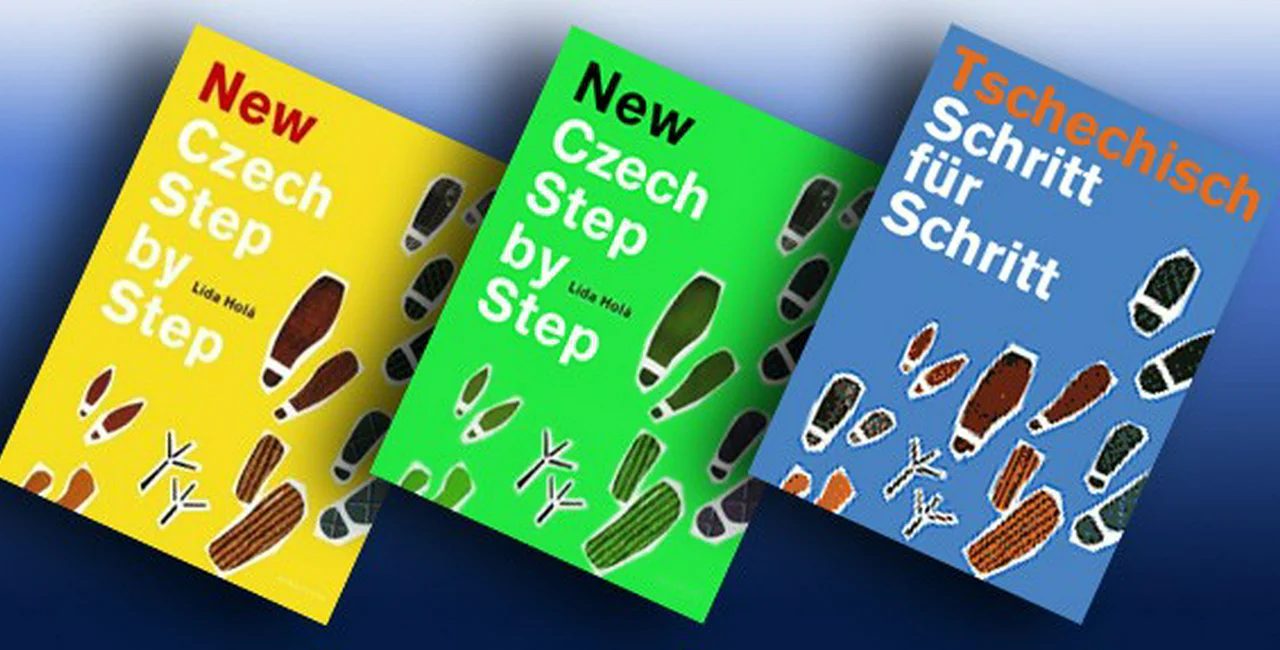If you´re going to be in the Czech Republic for any length of time, you´re going to want to learn at least some of the language. Yeah, it´s difficult, and it´s very likely that you´ll never master it, but the basics are both easy and essential. The following guide is, of course, for beginners; I’ve tried to create a simplified version of what you might see as the first lesson in a How to Learn Czech-type textbook. It’s by no means definitive, and really no substitute to verbal teaching, but nevertheless:
Pronunciation
Most guidebooks will give you some basic Czech vocabulary along with an English phonetic pronunciation. This can be helpful if you´ve got the book in front of you while attempting to communicate – if you plan on learning any amount of Czech, however, the first thing you´ll want learn is the proper pronunciation.
It´s relatively simple – letters generally sound the same despite the words that contain them. There are some exceptions, but unlike English, they follow fairly strict rules, and there aren´t many of them – you´re unlikely to encounter many oddities like “why don´t ‘daughter´ and ‘laughter´ sound the same?” in Czech.
Czech alphabet: a, á, b, c, č, d, ď, e, é, ě, f, g, h, ch, i, í, j, k, l, m, n, ň, o, ó, p, r, ř, s, š, t, ť, ú, ů, v, y, ý, z, ž.
The Letters q, w, and x typically exist only in foreign words.
Vowels are short (unaccented) and long (accented), and can be simplified thusly: pronounce the accented vowels the same as the unaccented, just hold them twice as long. Guide:
a makes an ‘ah´ sound (as in ‘bus´)
e makes an ‘eh´ sound (as in ‘red´)
i makes an ‘e´ sound (as in ‘bee´)
o makes an ‘o´ sound (as in ‘hot´)
u makes an ‘oo´ sound (as in ‘book´)
y is pronounced the same as i
ě makes a ‘ye´ sound (as in the ye in ‘yes´)
The following consonants sound the same in Czech as they do in the English examples:
b (as in ‘bed´)
d (as in ‘dog´)
f (as in ‘film´)
g (as in ‘game´)
h (as in ‘hot´)
l (as in ‘lit´)
m (as in ‘meat´)
n (as in ‘not´)
s (as in ‘sad´)
v (as in ‘van´)
z (as in ‘zone´)
Consonants k, p, and t are pretty much the same as in English, just softer – never with the ‘aspiration´ that they may have in English.
The others:
c makes a ‘ts´ sound (as in the ‘ts´ in ‘its´)
č makes a ‘ch´ sound (as in ‘cheese´)
ch makes a ‘huh´ sound like in ‘Loch´ – with a bit more phlegm
j makes a ‘y´ sound (as in yes)
r is rolled, making a ‘rrr´ sound (same as the Spanish r)
ř is the rolled r combined with a ž to make a ‘ rzhuh´ sound
š makes a ‘sh´ sound (as in ‘she´)
ž makes a ‘zhuh´ sound (as in ‘measure´)
ď, ť, and ň are pronounced slightly different than their counterparts d, t, and n. They´re softer, and sound somewhat like ‘dyuh´, ‘tyuh´, and ‘nyuh´. When these three letters are followed by an ě or an i, they lose the hook but are pronounced the same.
As I said before, all the letters will generally sound the same throughout the Czech language. A few exceptions:
When ě follows an m, a mňe (‘mnye’) sound is produced.
Double vowels: ‘au´, ‘eu´, and ‘ou´ are pronounced fluidly; all other double vowels are pronounced with a very brief pause in-between them.
This is the toughest – paired consonants: occasionally, one consonant is written when another is pronounced. Sometimes b changes to a ‘p´ sound; g to k; v to f; d to t; z to s; h to ch; ď to ť, ž to š. It happens when one of the letters from the first group (b, g, v, d, z, h, ď, or ž) ends a word (led is pronounced ‘let´) or starts a cluster of consonants that ends in one from the second (p, k, f, t, s, ch, ť, š) group (vstup is pronounced ‘fstup´). It also happens vice-versa when the last consonant of a cluster is from the first group (kdo is pronounced ‘gdo´). Only exception: if the cluster ends in v, there is no change.
Sorry to complicate things, but the pairs usually sound similar enough that people will still understand you if you don´t switch them.
Basic Vocabulary
Once you´ve got the pronunciation down, it´s time to move on to vocabulary. Here are some basic words and phrases that you´ll likely need to get around town:
| English | Czech | Phonetic |
| Yes | Ano | Ah-no |
| No | Ne | Neh |
| Good Morning | Dobré ráno | Do-breh rah-no |
| Good Day (formal hello) | Dobrý den | Do-bree Dehn |
| Hello (informal) | Ahoj | Ahoy |
| Good evening | Dobrý večer | Do-bree veh-chehr |
| Good-bye (formal) | Na shledanou | Nah skledah-noh |
| Good-bye (informal) | Čau | Chow |
| Good night | Dobrou noc | Do-brooh nots |
| Nice to meet you | Těší mě | Tye-shee Mye |
| How are you? (formal) | Jak se máte? | Yak seh mah-te |
| How are you? (informal) | Jak se máš? | Yak seh mahsh |
| I´m well | Mám se dobře | Mahm se do-breh |
| What is your name? | Jak se jmenujete? | Yak seh ymenooyete |
| My name is | Jmenuji se | Ymen-oo-ye seh |
| Do you speak English? | Mluvíte anglicky? | Mloo-veeteh ahngleetskee |
| I don´t speak Czech | Nemluvím česky | Neh-mloo-veem cheskee |
| I don´t understand | Nerozumím | Neh-rozoo-meem |
| Excuse me; forgive me | Promiňte | Promeenyuh teh |
| Thank you | Děkuji | Dyekooyee |
| Please; you´re welcome | Prosím | Proseem |
| How much is it? | Kolik to stojí? | Koleek toh stoyee |
| Bill, please | Účet, prosím | Oocheht, proseem |
| Bon appetite | Dobrou chuť | Do-brooh khutye |
| To your health (cheers) | Na zdraví | Nah zdrah-vee |
| Do you have? | Máte? | Mah-teh |
| Chicken | Kuře | koorzyuheh |
| Steak | Biftek | Beef-tehk |
| Fish | Ryby | Ree-bee |
| Cheese | Sýr | Seer |
| Bread | Chléb | Khlehb |
| Beer | Pivo | Pee-vo |
| Wine | Víno | Vee-no |
| Water | Voda | Vo-dah |
| Where is the? | Kde je? | Gdeh ye |
| Restroom | Toaleta | Toh-ah-lehta |
| Restaurant | Restaurace | Rehs-tau-rahtseh |
| Shop | Obchod | Ob-khod |
| Street | Ulice | Oo-leetseh |
| Police | Policie | Poleetsee-eh |
| Hospital | Nemocnice | Neh-mots-nitseh |
| Train Station | Nádraží | Nah-drazhyee |
| Airport | Letiště | Leh-teesh-tyeh |
| Help! | Pomoc! | Po-mots |
| Fire! | Hoří | Horzyuhee |
| Thief! | Zloděj | Zlo-dyeh |
| I want to speak Czech | Chci mluvit česky | Kh-tsee mloo-veet cheskee |













 Reading time: 5 minutes
Reading time: 5 minutes 





















